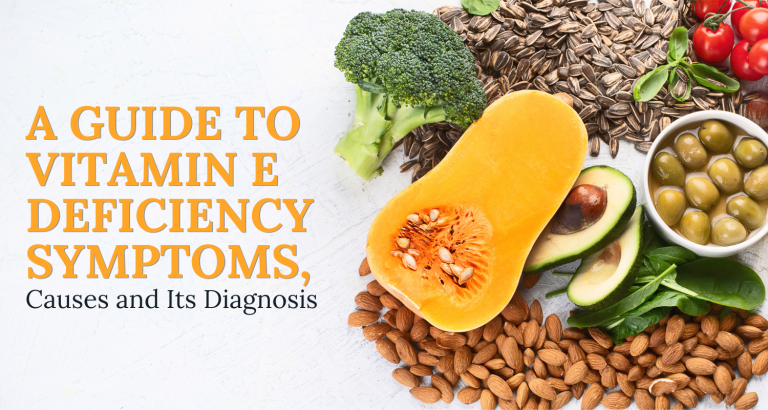Essentials Guide on Best Vitamins for Lung Health

Did you know that lung diseases, such as chronic obstructive pulmonary disease (COPD) and lung cancer, are responsible for over 3 million deaths worldwide each year?
This staggering statistic highlights the importance of prioritizing lung health and taking proactive steps to protect and strengthen our respiratory system.
In this section, we will explore the essential vitamins for lung health. Discover the top supplements or lung health vitamins and natural options for achieving optimal respiratory wellness.
Key Takeaways:
Understanding Lung Health
Before diving into the specific vitamins for lung health, it’s important to understand the factors and essential nutrients for lungs health.
The lungs play a crucial role in our respiratory system, responsible for taking in oxygen and expelling carbon dioxide. Maintaining optimal lung health is essential for overall well-being and longevity.
Vitamins and essential nutrients play a vital role in supporting respiratory function and promoting lung wellness. These nutrients help protect the lungs from oxidative stress, enhance immune response, and maintain the integrity of lung tissues.
Here are some key factors to consider when it comes to incorporating lung support vitamins:
- Environmental factors: Pollutants, toxins, and allergens can significantly impact lung health. It’s essential to minimize exposure to harmful substances, such as air pollutants, cigarette smoke, and industrial chemicals.
- Respiratory infections: Common respiratory infections like colds, flu, and pneumonia can affect lung function. Strengthening the immune system is crucial in reducing the risk of respiratory illnesses.
- Exercise and physical activity: Regular exercise helps improve lung capacity, promoting better oxygen intake and circulation. It also helps maintain healthy lung tissue and reduces the risk of respiratory problems.
- Nutrition: A well-balanced diet rich in vitamins, minerals, and antioxidants is essential for lung health. Certain vitamins and nutrients have specific benefits for respiratory function and overall lung wellness.
Understanding the role of vitamins for respiratory health and essential nutrients in maintaining lung health is the first step toward taking proactive measures to support your respiratory system.
In the following sections, we will delve into the specific vitamins that contribute to optimal lung health and explore their benefits in more detail.
Vitamin A: A Powerful Antioxidant
Vitamin A is an essential nutrient that plays a crucial role in supporting lung health. As a potent antioxidant, it helps combat oxidative stress and protects the respiratory system from damage caused by harmful free radicals.
By including adequate amounts of vitamin A in your diet or through supplementation, you can contribute to the overall function and wellness of your lungs.
Oxidative stress occurs when there is an imbalance between the production of free radicals and the body’s ability to neutralize them. In the context of lung health, oxidative stress can lead to inflammation, tissue damage, and impaired lung function.
Vitamin A acts as a powerful antioxidant by neutralizing free radicals and reducing the risk of these detrimental effects. In addition to its antioxidant properties, vitamin A also supports the health and integrity of lung tissue.
It helps maintain the structural integrity of the respiratory system, including the lining of the lungs and airways. This can contribute to improved respiratory function and a reduced risk of respiratory diseases.
To ensure an adequate intake of vitamin A, incorporate foods rich in this nutrient into your diet. Good dietary sources of vitamin A include fish, dairy products, eggs, and orange-colored fruits and vegetables such as carrots, sweet potatoes, and apricots.
Alternatively, you can consider taking lung health supplements that contain vitamin A, along with other essential nutrients for optimal respiratory wellness.
Remember to consult with a healthcare professional before starting any new supplement regimen or significantly altering your diet to ensure the best approach for your individual needs.
Vitamin C: Boosting Immunity and Lung Function
Vitamin C is renowned for its immune-boosting properties, but its benefits also extend to lung health. This essential vitamin plays a critical role in supporting respiratory wellness and improving lung function.
One of the key advantages of vitamin C for lung health is its ability to protect against respiratory infections. It strengthens the immune system, making it more resilient to common respiratory viruses and bacteria that can compromise lung function.
In addition to its immune-boosting effects, vitamin C also has antioxidant properties. This means it can help neutralize harmful free radicals that contribute to oxidative stress in the lungs. By reducing oxidative stress, vitamin C supports the overall health of lung tissue.
Vitamin C has been studied extensively for its potential to alleviate symptoms of respiratory conditions such as asthma and chronic obstructive pulmonary disease (COPD). It may help reduce inflammation in the airways and improve lung function in individuals with these conditions.
Benefits of Vitamin C for Lung Health:
Ensuring an adequate intake of vitamin C through diet or supplementation is essential for maintaining optimal lung health. Citrus fruits, strawberries, kiwifruit, bell peppers, and broccoli are excellent food sources of vitamin C.
However, consulting with a healthcare professional before starting any new supplement regimen is recommended to determine the appropriate dosage for your specific needs. By incorporating vitamin C into your daily routine, you can strengthen your immune system and support the health and function of your lungs.
Vitamin D: Enhancing Respiratory Wellness
Vitamin D is an essential nutrient that is well-known for its role in supporting bone health. However, it also has a significant impact on lung function and respiratory wellness.
Studies have shown that adequate levels of vitamin D can help reduce the risk of respiratory diseases and improve overall lung health.
One of the key benefits of vitamin D is its anti-inflammatory properties. Chronic inflammation in the lungs can lead to respiratory conditions such as asthma, chronic obstructive pulmonary disease (COPD), and even lung cancer.
Vitamin D helps modulate the inflammatory response in the respiratory system, providing natural lung support and promoting a healthy inflammatory balance.
Another way in which vitamin D enhances respiratory wellness is by boosting the immune system. A strong immune system is essential for fighting off infections and preventing respiratory illnesses.
Vitamin D helps stimulate the production of antimicrobial proteins and supports the function of immune cells involved in lung defense.
Benefits of Vitamin D for Lung Health:
While our bodies can produce vitamin D when exposed to sunlight, it can be challenging to maintain optimal levels, especially during the winter months or for individuals with limited sun exposure. Therefore, supplementation with vitamin D may be necessary to ensure adequate intake for lung health.
Consult with your healthcare professional to determine the appropriate dosage of vitamin D supplements for your specific needs. They can also help monitor your vitamin D levels through blood tests and guide you on maintaining a healthy vitamin D status for optimal lung health.
Vitamin E: Protecting Lung Tissue
Vitamin E is an essential nutrient that acts as a powerful antioxidant, playing a crucial role in protecting lung tissue from damage caused by harmful free radicals. By neutralizing these free radicals, vitamin E helps maintain healthy lungs and supports overall lung health.
Free radicals are unstable molecules that can cause oxidative stress, leading to inflammation and damage to lung cells. This can contribute to the development of various respiratory conditions, including asthma, chronic obstructive pulmonary disease (COPD), and lung cancer.
Fortunately, vitamin E helps counteract the harmful effects of these free radicals, providing a protective shield for lung tissue.
There are several ways in which vitamin E supports lung health:
- Antioxidant Defense: Vitamin E helps combat oxidative stress by neutralizing free radicals, reducing inflammation, and preventing cellular damage in the lungs.
- Immune Function: As an antioxidant, vitamin E enhances immune function, helping to defend against respiratory infections and supporting the body’s natural defense mechanisms against harmful pathogens.
- Tissue Repair: Vitamin E facilitates the repair and regeneration of damaged lung tissue, aiding in the healing process and promoting healthy lung function.
While vitamin E is naturally found in certain foods such as nuts, seeds, vegetable oils, and green leafy vegetables, it can also be obtained through dietary supplements.
However, it’s important to consult with a healthcare professional before starting any new supplement regimen to ensure proper dosage and potential interactions with other medications.
By incorporating sources of vitamin E into your diet or considering appropriate supplementation, you can take proactive steps to protect your lung tissue from oxidative damage and promote optimal lung health.
Remember that maintaining a balanced diet rich in essential nutrients, including vitamin E, is key to supporting your respiratory system and overall well-being.
Conclusion
Ensuring the proper intake of vitamins and nutrients is essential for maintaining optimal lung health. By incorporating these necessary nutrients into your daily diet or through supplementation, you can support the overall function of your respiratory system and promote healthy lungs.
Vitamin A, as a potent antioxidant, combats oxidative stress and contributes to the proper functioning of the respiratory system. Vitamin C, known for its immune-boosting properties, also plays a crucial role in lung health by protecting against respiratory infections and enhancing lung function.
Vitamin D is not only beneficial for bone health but also has a positive impact on lung function, reducing the risk of respiratory diseases. Furthermore, vitamin E, as a powerful antioxidant, protects lung tissue from damage caused by harmful free radicals.
Before incorporating any new supplement regimen, it is important to consult with a healthcare professional to ensure it aligns with your individual needs. Overall, prioritizing the intake of these specific vitamins and nutrients can significantly contribute to the maintenance of optimal lung health.
Best Vitamins for Lung Health – Frequently Asked Questions (FAQs)
What are the best vitamins for lung health?
The best vitamins for lung health include vitamin A, vitamin C, vitamin D, and vitamin E. These vitamins provide important antioxidant properties, support immune function, and protect lung tissue from damage.
Are there specific supplements or vitamins for lung health available?
Yes, there are supplements or vitamins for lung health available. These supplements may contain a combination of vitamins, minerals, and herbal extracts that are known to support respiratory function.
Can natural ingredients provide lung support?
Yes, certain natural ingredients can provide lung support. Some examples include herbal extracts like ginger, turmeric, and licorice root, which have anti-inflammatory properties and can help soothe and protect the lungs.
What are the essential nutrients for maintaining respiratory health?
Along with vitamins, essential nutrients for maintaining respiratory health include omega-3 fatty acids, magnesium, selenium, and zinc. These nutrients play a role in reducing inflammation, supporting lung tissue health, and boosting immune function.
Can vitamins help with respiratory illnesses and infections?
Yes, certain vitamins like vitamin C have immune-boosting properties that can help reduce the severity and duration of respiratory illnesses and infections. They can also help support overall lung function and recovery.
Are there any lifestyle changes that can improve lung health?
Yes, along with vitamin supplementation, adopting healthy lifestyle habits can greatly improve lung health. Avoiding smoking and exposure to secondhand smoke, exercising regularly, maintaining a healthy weight, and practicing good hygiene can all contribute to respiratory wellness.
Disclaimer: This content, including advice, provides generic information only. It is not a substitute for a qualified medical opinion. Always consult a specialist or your own doctor for more information. Ingredient Fact does not claim responsibility for this information.






